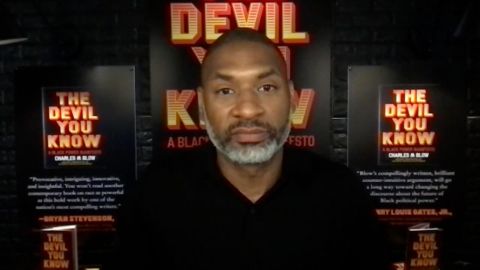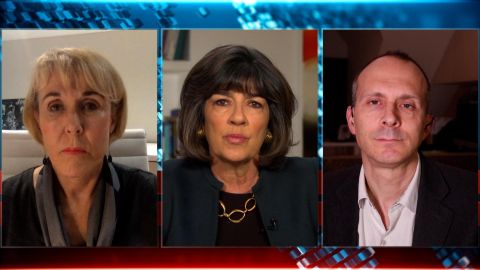Read Transcript EXPAND
CHRISTIANE AMANPOUR: Yes, he’s a very colorful, important, iconic figure. But why did you decide to take on Truman Capote? What was it?
EBS BURNOUGH, DIRECTOR, “THE CAPOTE TAPES”: Well, thank you for having me, Christiane. I was actually in the midst of reading a book many years ago that was on Bill Paley and the founding of CBS. And when I finished the tome, the two most interesting people to me were Truman Capote and Bill’s wife and Truman’s best friend, Babe. And that sent me back down a rabbit hole of studying Truman, and, of course, rewatching, the two feature films. Obviously, there’d been “Capote” with Philip Seymour Hoffman and “Infamous” with Toby Jones, but both really focused on a slice of Truman’s life. They focused really on the writing of “In Cold Blood.” And as I read more, and as I researched, I felt like his was a life that had not fully been mined for what could be learned today. I mean, he was an extraordinary character, and there was so much about him that just hadn’t been told, particularly in those films.
AMANPOUR: So, what for you is the most revealing thing that you found out? I mean, so much that you wanted to discover about him.
BURNOUGH: I think the most revealing thing for me was his real desire to have a family and the fact that, in an era where it was illegal to be an openly gay person in many places around the world, Truman was both openly gay, very famous, very clever. But he managed to create a family for himself by more or less adopting the daughter of one of his last lovers. And she moved in with him around the age of 13. And he raised her. And she considers him very much her father. And that, for me, was an extraordinary angle about him, because, so often, we hear about the clever writer, the mean person, that tiny terror, but that story and meeting her and delving into that piece of the story really put him in a different context for me.
AMANPOUR: And it showed his — the warmth of his heart, actually. And that will be interesting when we talk about essentially what happened to him at the very end with “Answered Prayers.” But I want to start by asking you about what you profile as well, “Other Voices, Other Rooms.” I think that was his first major work. It was written in the ’20s. And it caused quite a stir. It was kind of a coming out novel. It had a very provocative picture of Truman Capote on the cover. And I think one reviewer called it, like, the fairy version of “Huckleberry Finn.”
BURNOUGH: Yes. Truman was always provocative. And it showed through in that first novel, certainly, which was I think — Jay McInerney called it a bit of the very “Huck Finn” in the doc as well.
About This Episode EXPAND
Tim Harford and Dr. Helen Rees; Ebs Burnough; Charles M. Blow
LEARN MORE


